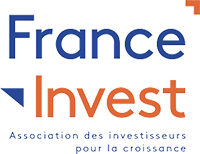Blog

Règlementation européenne : les standards techniques (RTS) sont en cours de consultation
Le texte de loi est maintenant en cours d’adaptation au régime de chaque pays membre de l’Union économique européenne. Son entrée en application est fixée au 10 novembre 2021.
L’Autorité Européenne des Marchés Financiers – ESMA (European Securities and Markets Authority) a rédigé un certain nombre de normes venant préciser le règlement et sa mise en œuvre.
Pour aller plus loin et inclure les acteurs du secteur dans la mise en place du nouveau règlement, l’ESMA a lancé une consultation portant sur 9 des 12 standards techniques du règlement.
Ces RTS (Regulatory Technical Standards) sont en cours de consultation jusqu’au 28 mai prochain.
Afin de formuler une réponse concertée et défendre au mieux les intérêts des plateformes françaises, l’association Financement Participatif France a programmé auprès de ses membres une série de réunions de travail entre le 17 mars et le 7 avril.
Les plateformes membres de FPF sont invitées à exprimer leurs recommandations, points de vigilances et interrogations sur les nouveaux dispositifs prévus.
Rappel des grandes lignes du nouveau règlement européen
A l’initiative de l’Union Européen, ce règlement a pour ambitions de palier à l’absence de marché unique pour le crowdfunding au sein de l’UE et de promouvoir le marché du financement participatif encore sous-évalué par rapport aux autres grandes puissances économiques.
En harmonisant le cadre légal de la finance participative au niveau européen, la Commission Européenne a pour autres objectifs d’améliorer l’accès au financement des jeunes entreprises et PME et de favoriser l’usage de la finance digitale.
Agrément et passeport
Le règlement prévoit un statut obligatoire pour les activités de financement participatif sous forme de souscription de titres et/ou de prêts avec intérêt. Ce nouvel agrément ne concerne pas les prêts sans intérêt, prêts aux particuliers ainsi que les dons.
En France, l’agrément PSFP / ECSP remplace les statuts CIP et IFP pour les prêts, les plateformes devront en faire la demande auprès du régulateur désigné.
Les plateformes existantes auront un an à compter de l’entrée en application du règlement pour faire leur demande d’agrément. Une procédure d’obtention simplifiée est prévue pendant cette période transitoire. Au-delà, les plateformes existantes ne pourront plus exercer leurs activités.
Une plateforme qui souhaite proposer des prestations transfrontalières de services devra faire une demande de « passeport européen » adressée à l’autorité compétente de son État. La demande comportera la liste des États membres où le prestataire souhaite exercer ainsi que la liste des personnes morales ou physiques responsables de la prestation dans les États membres.
Statut RTO
Le nouveau régime est fondé sur un statut de réception transmission d’ordres (RTO) et non plus de conseil comme c’est le cas en France pour les CIP. La plateforme reste responsable du contrôle des fiches d’information et de la mise en place des contrôles pour les investisseurs non avertis.
Les PSFP / ECSP pourront proposer des services annexes tels que la gestion de portefeuille de prêts ou des services de mise en relation avec une autre plateforme et se rémunérer en tant qu’apporteur d’affaire.
Les plateformes pourront également proposer un tableau d’affichage permettant aux investisseurs d’annoncer leur intérêt d’achat ou de vente.
Seuil de collecte et catégorie d’investisseurs
Le règlement a uniformisé le seuil de collecte à 5 000 000€ par porteur de projet et par année.
Actuellement fixé à 8 000 000€ en France, cette diminution du montant de la collecte est perçue comme un retour en arrière par l’écosystème français. A nuancer pourtant car en 2019 les projets obligataires ont collecté en moyenne 721 852 € par projet, tandis que l’investissement par capital était autour de 620 481 € par projet.
Le nouveau règlement mise avant tout sur l’opportunité de diversifier et d’augmenter le nombre de projets par année ainsi que de démocratiser l’accès au financement pour les souscripteurs. De nouvelles règles ont été établies afin de protéger les investisseurs.
Le règlement distingue ainsi deux catégories de souscripteurs. Les investisseurs « avertis » et les investisseurs « non avertis ».
Les investisseurs non avertis seront soumis à un test de connaissance ainsi qu’à une simulation de leur capacité à supporter les pertes. Ils ne pourront investir au-delà de 1000€ par projet ou 5% de leur patrimoine net. Après évaluation initiale, un nouveau test sera proposé tous les deux ans afin de réexaminer l’expérience de l’investisseur.
Dans le cas où un investisseur non averti souhaite financer un projet au-delà du seuil fixé, il devra recevoir un avertissement sur les risques et donner son consentement explicite.
Fiche d’informations clés sur l’investissement
Le porteur de projet a pour responsabilité de fournir à la plateforme une fiche d’informations clés sur l’investissement (KIIS). L’autorité compétente peut exiger la fiche d’information au moins 7 jours avant la publication du projet.
La fiche doit être rédigée dans une langue officielle ou acceptée par l’État membre ou l’agrément est accordé. Son contenu est précisé dans le règlement, l’ESMA proposera des modèles détaillant les conditions à respecter.
La plateforme doit mettre en place des procédures pour vérifier l’exhaustivité des informations proposées. En cas d’erreur relevée, le porteur de projet dispose de 30 jours pour apporter une correction à la fiche au risque de voir son offre annulée.
Consultation des RTS, le marché français s’organise
L’ESMA propose une consultation concernant 7 RTS et 2 ITS jusqu’au 28 mai. L’association Financement Participatif France s’est positionnée pour apporter une réponse collective à la consultation et porter la voix du marché français.
Les RTS concernés sont les suivants :
- RTS 1 - Réclamations des clients sur la plateforme (Article 7)
- RTS 2 - Conflits d'intérêts sur la plateforme (Article 8)
- RTS 3 - Plan de continuité d’activité (Article 12)
- RTS 4 - Procédure de demande d'agrément pour les plateformes (Article 12)
- RTS 5 - Indicateurs de taux de défaut (Article 20)
- RTS 6 - Test de connaissances et outil de simulation des pertes (Article 21)
- RTS 7 - KIIS (Key Investment Information Sheet – Fiche d’informations clés sur l’investissement) (Article 23)
Financement Participatif France a établi le calendrier suivant pour les réunions de consultation par RTS :
- 17 mars 14h - 15h : RTS 1 réclamation clients
- 18 mars 14h - 15h : RTS 5 taux de défauts
- 24 mars 9h30 - 11h : RTS 2 Conflits d’intérêts / RTS 3 Plan de continuité
- 29 mars 17h - 18h : Procédure d’agrément
- 31 mars 17h - 18h30 : RTS 6 Test de connaissance et outil de simulation des pertes
- 7 avril 10h - 12h : RTS 7 KIIS Fiche d’informations clés sur l’investissement
Ces réunions sont exclusivement réservées aux membres de Financement Participatif France.
Mipise encourage les plateformes clientes de sa solution de crowdfunding en marque blanche membres de FPF ainsi que les plateformes concernées par la nouvelle règlementation à s’inscrire aux réunions.
Il s’agit ici d’une occasion de pouvoir s’exprimer collectivement ainsi que de partager vos interrogations, recommandations et bonnes pratiques quant aux dispositifs de mise en application de ces RTS.
La consultation proposée par l’ESMA est en cours jusqu’au 28 mai prochain, il est également possible pour chaque plateforme de proposer une réponse individuelle.













